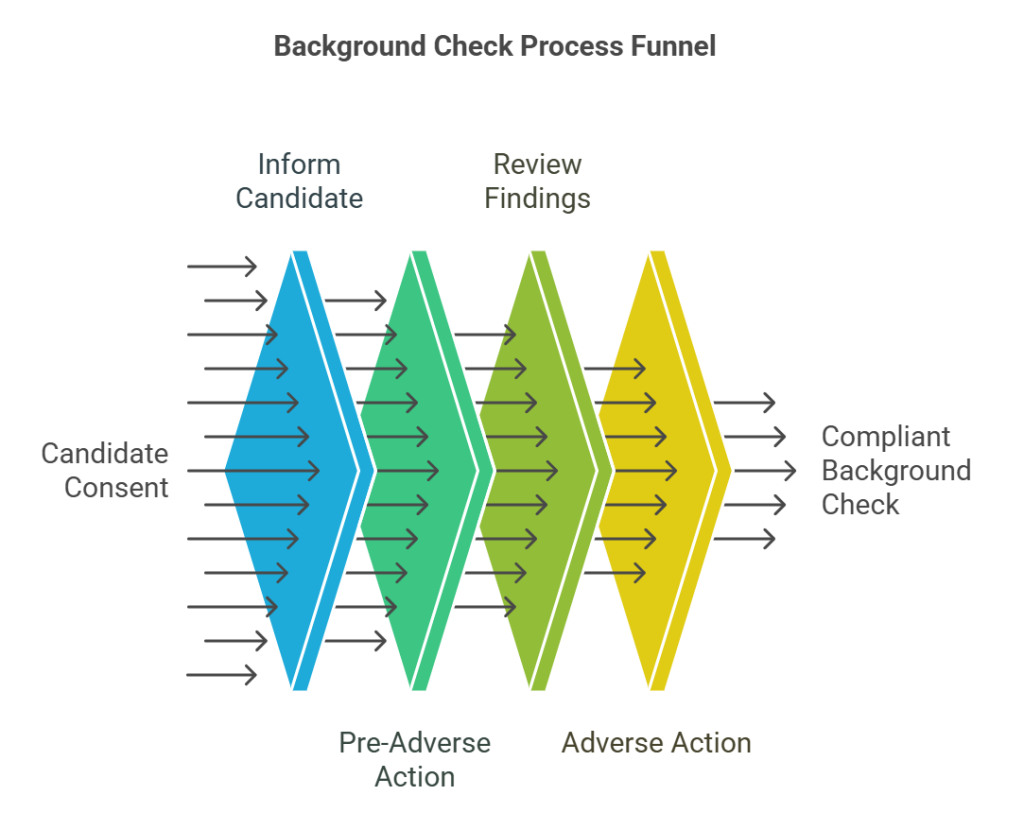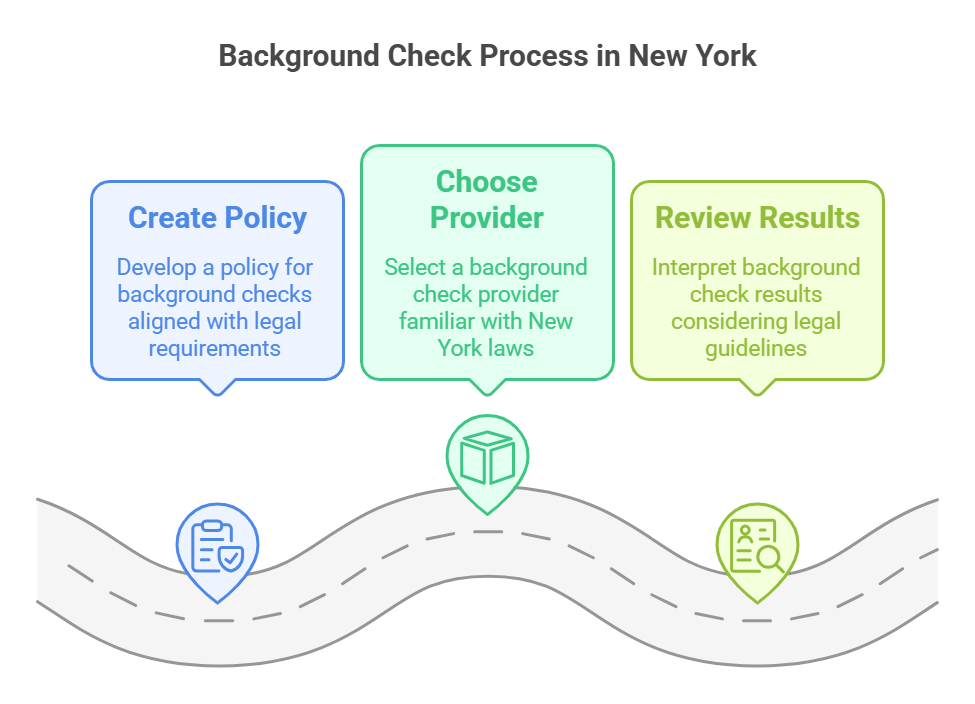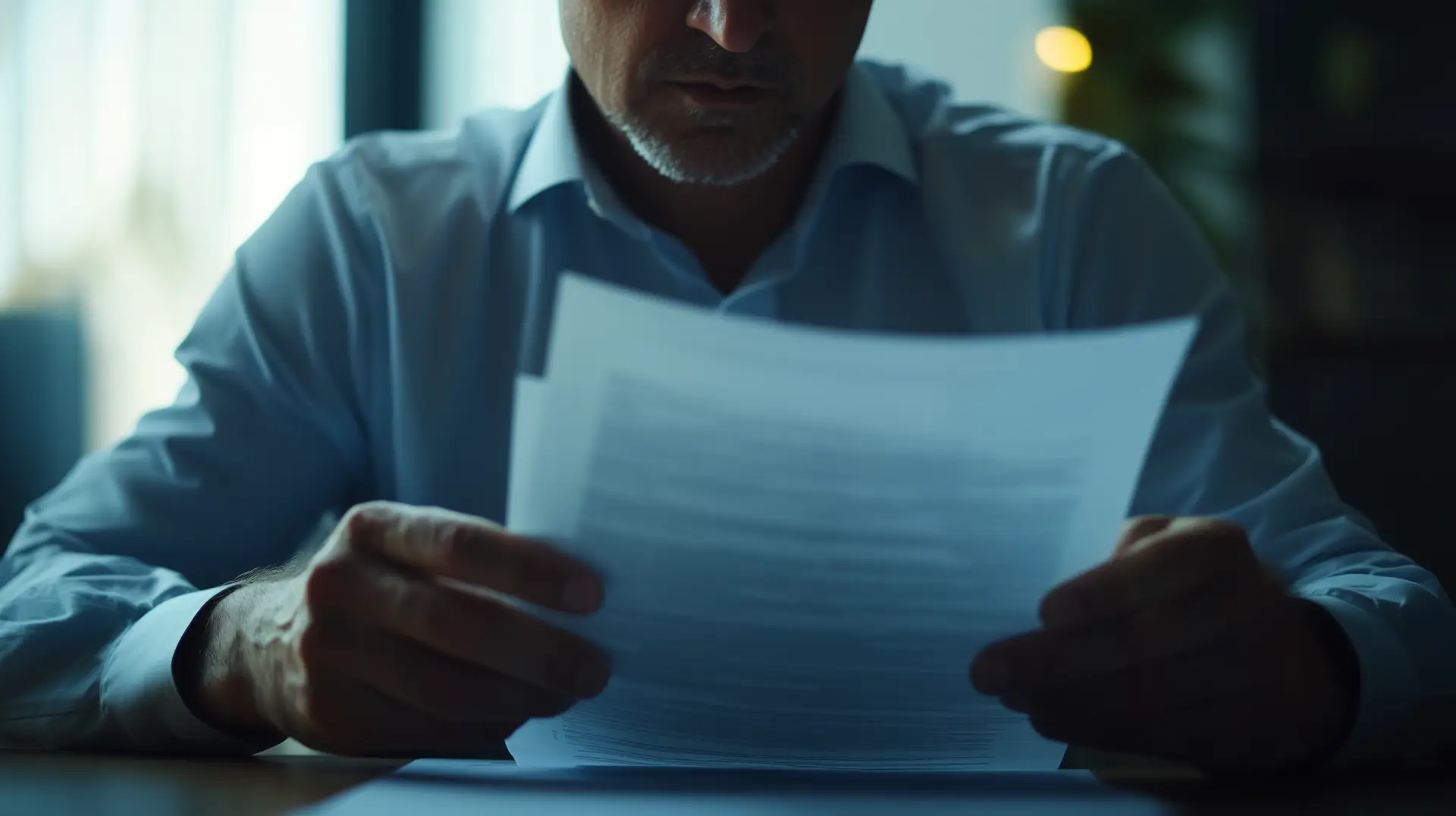Conducting a background check is a critical step in the hiring process. Employers must ensure that potential employees are trustworthy and pose no risk to the workplace. However, conducting such checks in New York comes with its own set of legal requirements and privacy laws that must be stringently followed. Whether you're an employer or a job seeker, understanding these New York background check privacy laws is crucial.
Key Takeaways
- New York privacy laws emphasize safeguarding job seekers’ information during background checks while permitting necessary access for employers.
- Employers must adhere to the New York Fair Credit Reporting Act and Article 23-A, which require an individualized assessment and prohibit discrimination based on criminal history.
- Consent and notification before conducting background checks are mandatory, ensuring candidates can review and dispute any inaccuracies.
- Employers are limited to collecting job-relevant information and must handle sensitive data securely to comply with privacy laws.
- Failure to comply with these laws can lead to significant penalties and reputational damage for employers.
Understanding Background Check Privacy Laws in New York
Diving into New York's privacy laws starts with understanding the framework they establish, particularly how they relate to employment background checks. The laws in New York are designed to ensure that personal information handled during these checks is protected, balancing the needs of employers with the privacy rights of job seekers.
Introduction to New York Privacy Laws
In New York, privacy laws around background checks are structured to provide transparency and protection for individuals. A primary piece of this framework is the New York Fair Credit Reporting Act (NY FCRA), which aligns closely with the federal FCRA but adds state-specific nuances. Its role is to govern how consumer information is collected, shared, and used by employers, ensuring that the rights of job applicants are considered during the hiring process.
Compliance with State Regulations
Compliance is not optional. Key regulations include the NY FCRA and New York Labor Law Article 23-A. The latter is particularly noteworthy as it provides guidance on how past criminal records should be treated, taking into account factors like time elapsed and the relevance of the offense to the job. This law aims to prevent discrimination based on criminal history and promote fair employment practices. Employers are required to perform an individualized assessment of applicants with criminal records, rather than outright rejecting them based solely on their history. Such regulations underscore the necessity for employers to create fair and lawful policies when conducting background checks, thereby ensuring both compliance and trust in the hiring process.
Key Components of New York Background Check Privacy Laws

Conducting background checks in New York involves a few key components that aim to balance the needs of employers and the privacy rights of candidates. Let's break them down into essential elements:
Consent and Notification
Before initiating a background check, employers must secure written consent from the job candidate. This isn't just a formality—but a legal requirement. The candidate must explicitly agree to the background check after being informed about its nature and scope. If an employer decides not to hire a candidate based on the findings of this check, they're required to provide a pre-adverse action notice. This gives the candidate a chance to review the findings and dispute any inaccuracies. Following that, an adverse action notice should be issued if the decision remains unchanged. This transparency ensures the candidate is not blindsided by decisions that can affect their employment prospects.
Information Limits
The type of information that can be gathered is not without limits. Background checks should focus on information pertinent to the job at hand. This means excluding irrelevant details that don't pertain to the job’s responsibilities, thus safeguarding against unnecessary invasions of privacy. For instance, inquiries into a candidate’s criminal history must weigh the nature of the crime against the job’s duties. Employers must carefully consider these factors to comply with New York’s privacy mandates, which are designed to promote fairness and balance.
Handling Sensitive Information
The handling of sensitive information such as credit reports and criminal histories requires extra care to ensure compliance with privacy laws. Employers are tasked with securing this data both during storage and while it’s in use, safeguarding it from unauthorized access. Mismanagement of this information can lead to legal troubles, making it crucial for employers to follow data protection standards diligently. Proper protocols must be in place to minimize risks and ensure that sensitive information is treated with the highest level of confidentiality.
Navigating these components may seem intricate, but they are necessary steps to maintain legal compliance and uphold the integrity of the hiring process. They also play a critical role in protecting the interests of both employers and potential employees in New York.
Conducting Background Checks: Step-by-Step Guide for Employers

Create a Policy
Start by crafting a well-defined policy for background checks. This document should align with New York’s legal requirements and clarify the types of checks you will perform, their relevance to different positions, and how you will address any findings. This policy will guide your actions and help ensure consistency and fairness.
Choosing a Background Check Provider
Finding the right provider is crucial. Pick a service that understands New York's privacy laws and operates transparently. They should provide detailed information on the scope of their checks and how they handle sensitive data, ensuring compliance with both federal and state regulations.
Reviewing Results
Once you have the results, it’s time to interpret them. Look for information directly relevant to the job role. Past offenses should be evaluated in light of Article 23-A of the New York Labor Law, which mandates consideration of several factors before making employment decisions based on criminal records. Document your review process to keep it consistent and unbiased.
Common Concerns
What is Included in a Background Check?
Background checks can vary, but most employers in New York typically look at criminal records, credit history, and employment verification. Each piece serves a specific role, helping employers get a clearer picture of a candidate's past. Criminal records show any past legal issues; credit history might highlight financial responsibility; employment verification confirms previous job roles and tenures. It's all about ensuring the candidate is right for the role concerning trust and reliability.
Rights of Job Seekers
New York law affords job seekers specific rights in this process. Importantly, candidates can access the information gathered during a background check, helping them spot any inaccuracies. If you find something amiss, you have a right to dispute it. The Fair Credit Reporting Act (FCRA) provides additional protection by mandating employer disclosures if the background check influences their hiring decision. Know your rights and exercise them to protect your interests.
Impact of Past Criminal Records
For those with a criminal history, concerns about background checks can be particularly pressing. New York’s Article 23-A offers protection here, focusing on fair treatment. It encourages employers to consider factors like the nature of the offense and its relevance to the job, the time since the conviction, and evidence of rehabilitation. This means that minor infractions or old offenses might not close the door on employment opportunities, giving hope to those who have worked toward turning their lives around.
Legal Ramifications for Non-Compliance
Breaking New York's background check privacy laws can lead to serious consequences for employers. Violations may result in steep penalties, including fines that can add up quickly with each infringement. The New York Attorney General’s office doesn't shy away from imposing these fines on companies that ignore legal directives.
For instance, a company might incur thousands of dollars in penalties if found guilty of conducting checks without proper consent or failing to provide the required notifications following an adverse action. In severe cases, repeated non-compliance might lead to lawsuits, where organizations could face further financial and reputational damage.
Real-world examples highlight these risks. Consider cases where firms were sued for misusing background reports, or for not following procedures under Article 23-A when dealing with applicants' criminal records. These breaches didn't just bring fines but also brought negative publicity that affected the company's standing with both clients and prospective employees. Keeping compliant isn't just a legal necessity—it's sound business practice.
Tools and Resources to Assist with Compliance
Navigating New York's background check privacy laws can be tricky, but there are resources to help you do it right. First up are background check services. They come in many shapes and sizes, offering everything from standard criminal and credit checks to more comprehensive screenings. When choosing a service, look for those that follow New York's specific legal requirements. They shouldn't just offer data; they should ensure the process respects candidate privacy and legality.
If legal jargon leaves you puzzled, consider legal assistance. Lawyers or consultants specializing in employment law can provide clarity. They can help interpret the fine print of New York's privacy regulations and guide you through compliance requirements. This isn't just a one-time check; keeping an ongoing relationship with legal experts can save a lot of headaches down the road.
The digital world is full of resources, too. Various online platforms offer guidance and insights about background checks. Government websites, employment agencies, and non-profit organizations often release updates and materials that can help you stay current on the law. These resources can be invaluable for both employers needing to stay compliant and job seekers looking to understand their rights.
Frequently Asked Questions (FAQs)
What should I do if I find inaccurate information in my background check?
If you discover inaccuracies, you have the right to dispute the information. Contact both the company that performed the check and the employer to notify them of the mistake. You can request a reinvestigation by the background check company, which they're obligated to conduct.
How far back do background checks go in New York?
In New York, certain aspects of a background check, like credit reports, typically cover up to seven years. Criminal records can vary, but New York employers often focus on the past seven years unless legally required to look further back.
Can I refuse a background check without losing a job offer?
Technically, you can refuse a background check, but this might result in the withdrawal of the job offer. Employers usually include background checks as a condition of employment. It's crucial to discuss any concerns with the employer upfront.
Conclusion
Navigating the maze of background check privacy laws in New York is essential for fostering a fair hiring process. These laws are designed to protect both employers and job seekers by ensuring transparency and adhering to legal standards. Employers must carefully follow the rules to maintain compliance, while job seekers should be aware of their rights to challenge inaccuracies and advocate for themselves. Staying informed about the latest legal developments is key to protecting privacy and promoting fairness. By doing so, all parties can contribute to a hiring environment that respects individual rights and upholds justice.
Definitions
Consent and Notification
Consent and notification refer to the legal requirement for employers to obtain a job applicant's written permission before conducting a background check, as well as the obligation to inform them about the process. In New York, employers must clearly explain the purpose and scope of the check to the candidate.
Additionally, if the findings lead to a potential adverse decision, the employer must provide the applicant with a pre-adverse action notice, granting them an opportunity to dispute inaccuracies before any final determination is made.
Article 23-A of the New York Labor Law
Article 23-A is a regulation that focuses on the fair consideration of individuals with criminal histories during the hiring process. It requires employers to evaluate the relevance of past convictions to the job being applied for and consider factors such as time elapsed since the offense, the nature of the offense, and evidence of rehabilitation. The law is designed to prevent discrimination based solely on criminal records and promote equitable access to employment opportunities.
Adverse Action Notice
An adverse action notice is a formal communication provided by an employer to a job candidate when a hiring decision is negatively influenced by the results of a background check. This notice is sent after the candidate has been given a pre-adverse action notice and an opportunity to dispute any errors. The adverse action notice must clearly outline the reasons for the decision and include information about the background check company involved, ensuring transparency and compliance with New York’s privacy laws and the Fair Credit Reporting Act.

GCheck Editorial Team
Meet the GCheck Editorial Team, your trusted source for insightful and up-to-date information in the world of employment background checks. Committed to delivering the latest trends, best practices, and industry insights, our team is dedicated to keeping you informed.
With a passion for ensuring accuracy, compliance, and efficiency in background screening, we are your go-to experts in the field. Stay tuned for our comprehensive articles, guides, and analysis, designed to empower businesses and individuals with the knowledge they need to make informed decisions.
At GCheck, we're here to guide you through the complexities of background checks, every step of the way.





